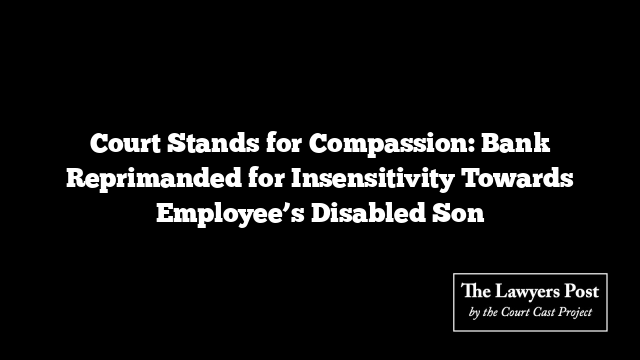In a compelling judgment, the Bombay High Court strongly criticized Indian Overseas Bank (IOB) for its lack of empathy in handling the case of an employee who sought to remain in Mumbai to care for her visually impaired child. The Court imposed a ₹25,000 penalty on the bank, calling its approach devoid of human sensitivity and setting aside the transfer order that would have uprooted the employee.
The employee, a devoted mother, had been promoted from a clerical role to Assistant Manager, a position that required relocation to Chennai. Faced with the challenge of caring for her 10-year-old son, who has a 95% visual impairment, she offered to relinquish her promotion to stay in Mumbai. However, the bank rejected her request, citing a lack of policy for reversing promotions.
A bench comprising Justices Bharati Dangre and Ashwin D Bhobe condemned the bank’s rigid stance, emphasizing that compassion should prevail over bureaucracy. “The lack of a policy cannot justify the absence of a sympathetic approach,” the Court stated, noting the sacrifices made by the mother to prioritize her child’s well-being.
The bank’s argument—that the child could be cared for equally well in Chennai—was met with sharp criticism. The Court firmly held that a mother is best positioned to determine what is in her child’s best interest, rejecting the notion that distant corporate decision-makers could dictate such matters.
By overturning the transfer, the Court reinstated the employee to her previous clerical role in Mumbai, ensuring she faced no professional setbacks. Furthermore, it mandated that the financial benefits she received during her brief tenure as Assistant Manager in Chennai would remain intact.
In a gesture of accountability, the ₹25,000 fine imposed on the bank will be directed to the National Association for the Blind. The ruling underscores the expectation that employers act with humanity, particularly in situations where an employee’s family circumstances demand understanding.
This case highlights the need for organizations to align their policies with principles of empathy, ensuring that no employee is forced to choose between career advancement and familial responsibilities.





